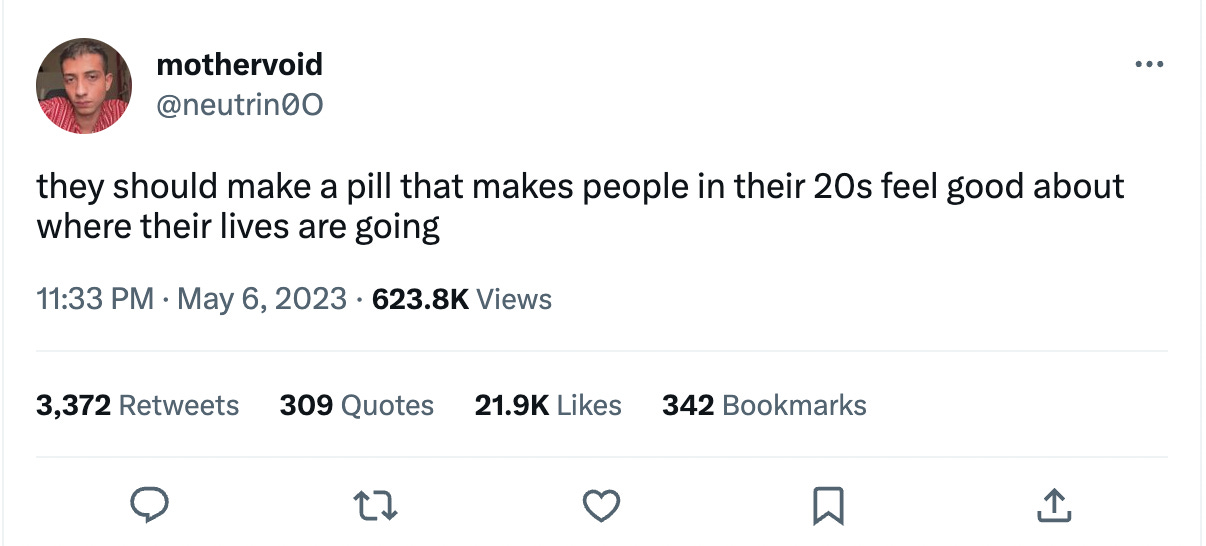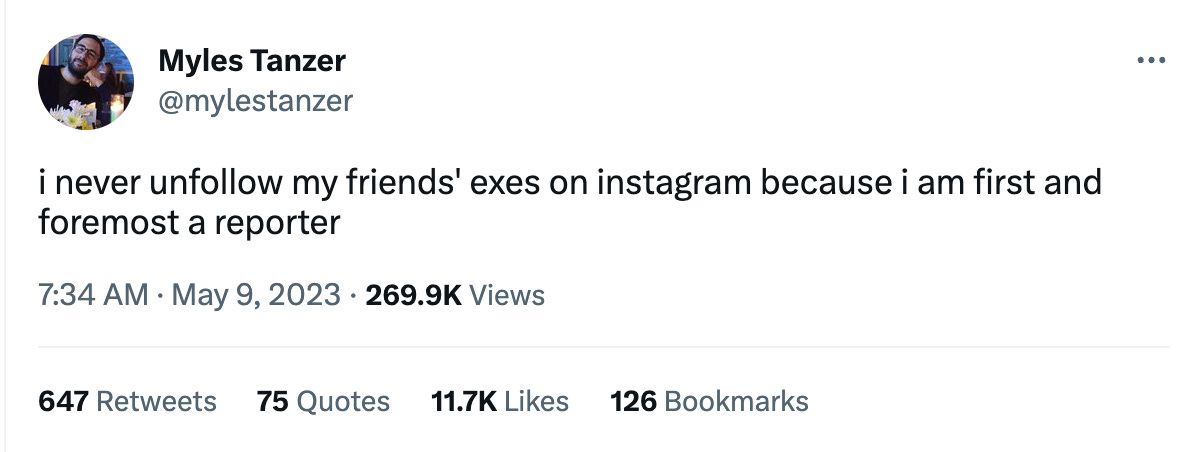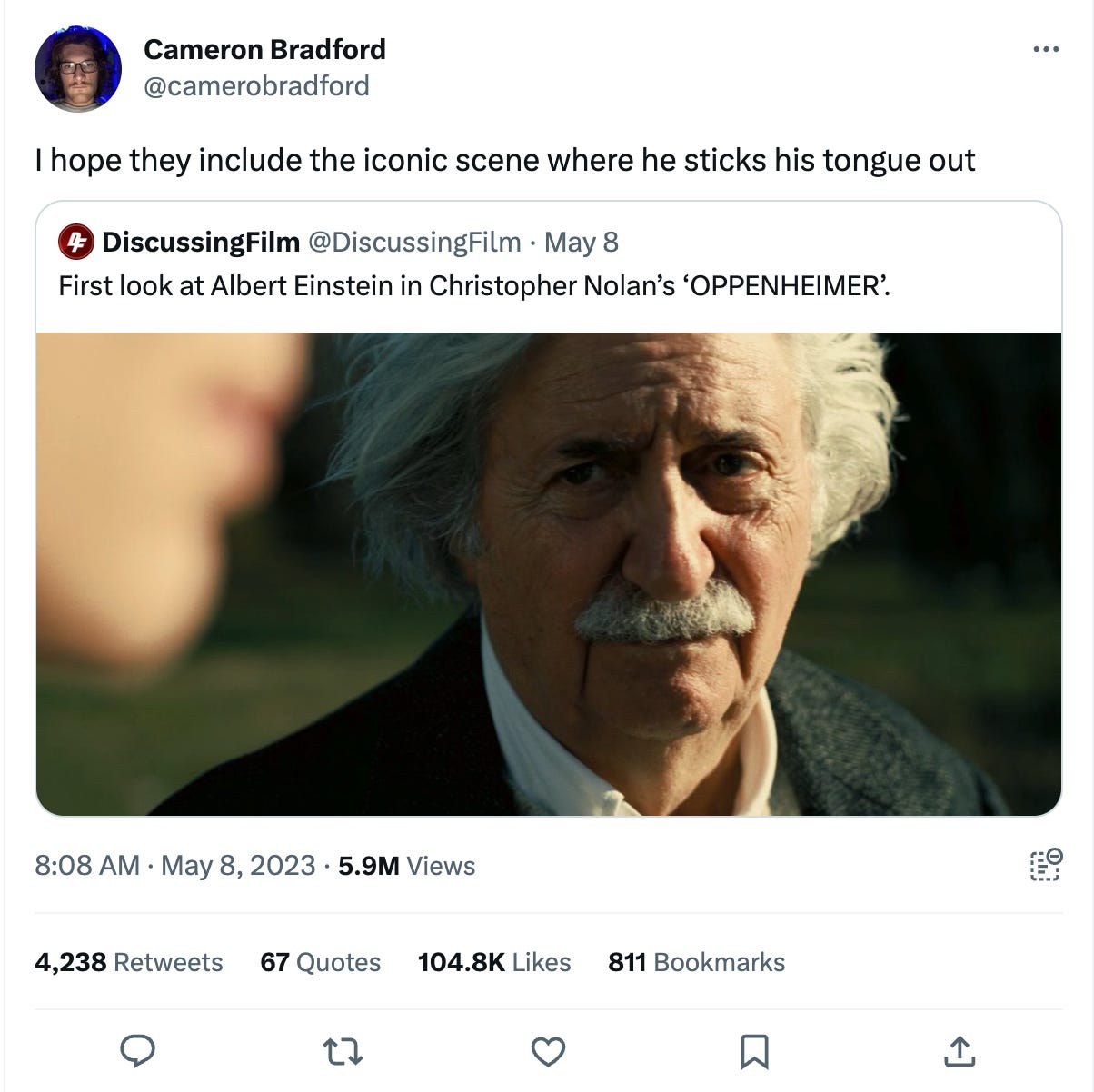Canada shakes down the platforms
More countries are seeking payouts for publishers. Will Meta's line in the sand hold?
Today let’s talk about an escalating conflict over the role that platforms should play in funding journalism — and what, if anything, platforms have learned since this issue first came to a head.
For a brief moment in 2021, Facebook suddenly began preventing people from sharing links to Australian news publishers around the world. The move came in response to a law known as the News Media Bargaining Code, which requires designated platforms to pay publishers millions of dollars for the right to display news links on Facebook and Instagram.
After a few chaotic days and some minor tweaks to the legislation, Facebook restored users’ ability to post links. I wrote at the time that the code was a bad bargain — and would become a template for other countries to follow.
Indeed it has. Since it took effect, Facebook and Google have reportedly paid $140 million a year to Australian outlets. And with the money spigot now flowing, publishers in other countries are lining up to seek similar deals.
The latest is Canada, where the proposed Online News Act mirrors most aspects of the Australian law. As in Australia, it effectively requires big platforms to pay publishers for the right to display links to news stories. Should they refuse, they are sent to binding arbitration with a Canadian judge, who determines the price they must pay.
These laws rest upon the presumption that platforms will pay almost any price to ensure that their users can post links to publishers’ content. Along with Canada, Indonesia and the state of California are now considering laws similar to Australia’s.
But now Meta is threatening to call their bluff.
Here are Jillian Deutsch and Stephanie Bodoni at Bloomberg:
“We’ve taken the difficult decision that if this flawed legislation is passed, we will have to end the availability of news content on Facebook and Instagram in Canada,” Nick Clegg, Meta’s president of global affairs, said in a statement on Monday. […]
Canada’s act, known as Bill C-18, was proposed to establish a “fair revenue sharing” system between digital platforms and news outlets and provide for collective bargaining by media in negotiating fees with companies like Meta. In introducing the legislation last year, Heritage Minister Pablo Rodriguez said he was seeking to address a “market imbalance” as an increasing number of Canadians turn to digital platforms for news.
Of course, Meta called Australia’s bluff once, too. In the end, it restored publishers’ links within a few days (albeit with some minor concessions). The question now is whether this time Meta can stick to its guns.
Few people are more sympathetic to web publishers than I am. But I find this the rise of these shakedown bills distasteful for a few reasons.
One, I think the press should work to become less dependent on tech platforms, not more. The recent demise of BuzzFeed News, which was perhaps the most platform-dependent news site in history, offers a sad cautionary tale. There’s an ethics dimension to consider — how independent is your press, really, when it depends on funding from two of the biggest companies in the world? And there’s a practical one, too: what happens to journalism should Google or Facebook ever go away?
Two, these laws don’t actually require any of the money to go to journalists. Those decisions are left to the media companies’ owners, who have historically done a great job separating reporters from the value they create. Some outlets have used their shakedown money to bring on new reporters — the Guardian reportedly hired 50 Australian journalists with its cut — but details are generally shrouded in a secrecy that should be shameful to an industry charged with protecting the public’s right to know.
“If you want to know how much money the platforms have paid to news organizations, you’re out of luck,” Bill Grueskin wrote in a piece on the Australian law last year in Columbia Journalism Review. “If you want to learn whether newsrooms are spending that money to bolster journalism, rather than pad executives’ salaries, you’re out of luck. I’ve been talking to newsroom managers most of my adult life, and I’ve never seen a group so reticent to share details of anything related to their business — thanks to ironclad secrecy agreements insisted upon by the tech companies.”
Finally, and perhaps most idealistically, the right to display links is a foundational piece of the open web — and of Platformer, too. Once you tell people they have to pay you to link to them, you start breaking a lot of things that we currently take for granted. What is a social network if not a bunch of links to stuff?
Google agreed to Australia’s terms last time around because losing publishers’ links would make its search engine much worse. The company has expressed concerns about Canada’s law, but has not threatened to remove its links quite as aggressively as Meta has.
Meta has slightly more leverage, because links arguably aren’t as important to that company as they are to Google. Since the Australia law was passed, the percentage of links to publisher stories on Facebook dropped from 4 percent to 3 percent. Readers are learning to seek news elsewhere, as they should. News was always a distracting sideshow on Facebook, and we’re all better off getting our journalism more directly from the source.
None of which is to say that journalism doesn’t face an economic crisis. But lawmakers have much better ways they could pay for that news than to enforce these shady, back-room deals. They could levy a tax on platforms’ ad revenue, for example. They could directly fund a stronger public media ecosystem, which studies consistently show to have a powerful pro-democracy effect. They could offer tax incentives to small and medium-sized outlets to hire and retain journalists, which might insulate them from the fair criticism that so far Australia’s law has mostly served to bolster large media conglomerates.
Any of that would be far preferable to breaking the web, and making the next generation of journalists just as dependent on Google and Facebook as the previous one was. If Canadian lawmakers want to know how that turns out in the end, I’m happy to share the names of my journalist friends who were laid off when the money ran out.
It is not a short list.
Coming Thursday: A look at Google I/O. I’ll be live on the ground tomorrow, and may live-skeet the more interesting bits.
Talk about this edition with us in Discord: This link will get you in for the next week.
Pushback
Thanks to everyone who wrote in with thoughts on yesterday’s piece on how to cover AI. I got an unusually big and varied response, and I haven’t even finished reading the emails you sent. Thanks to everyone who wrote in — I plan to share your thoughts here after I finish reading and synthesizing what you told me.
Governing
China arrested a man for using ChatGPT to generate fake news stories, including one of a train crash, in what may be the country’s first ever detention related to misuse of AI. (Low De Wei / Bloomberg)
LinkedIn said it would discontinue its China-focused jobs app, called InCareers, in August, cited a “challenging” environment operating in the country. The company said it is also laying off over 700 employees. (Stephen Nellis / Reuters)
A guide to cryptographic passkeys, a new authentication feature that replaces passwords, recommends Google account owners turn them on immediately. (Dan Goodin / Ars Technica)
Industry
Tucker Carlson’s show is coming to Twitter 2.0. A perfect fit for Elon Musk’s platform. (Dan Primack / Axios)
OpenAI is developing a new tool designed to explain which parts of its large language models are responsible for specific behaviors. (Kyle Wiggers / TechCrunch)
Google I/O, in which the company is expected to announce major new AI features and initiatives, starts with a livestreamed keynote event at 10AM PT / 1PM ET tomorrow. (Emma Roth / The Verge)
Spotify removed tens of thousands of machine-generate songs from AI music startup Boomy over the platform’s suspected use of bots to inflate its listening metrics. (Anna Nicolaou / Financial Times)
Meta open-sourced ImageBlind, a multi-sensory AI model that combines text, audio, visual, movement, thermal, and depth data. The research may prove promising for generative AR and VR applications. (James Vincent / The Verge)
Wendy’s is partnering with Google to develop an AI chatbot trained to take drive-thru orders and understand acronyms and shorthand for its menu items. (Angus Loten / WSJ)
A Princeton computer science student developed an AI detection app called GPTZero for detecting generative text with 85% accuracy. The app now has more than 1.2 million users — and a 10-person team with $3.5 million in new funding. (Diana Li / Bloomberg)
IBM announced Watsonx, a new platform for building AI models and providing access to generative tools for code and text. The company’s chief commercial officer warned that managers who don’t use AI will get replaced. (Kyle Wiggers / TechCrunch)
Microsoft said it is expanding access to its Copilot software, a digital assistant built on OpenAI’s GPT-4, and adding new enterprise features. (Jess Weatherbed / The Verge)
Something Awful forum members banded together to download as many source images off Imgur as possible ahead of the image sharing platform’s purge of inactive links. (Adi Robertson / The Verge)
Meta is testing a new payout system for Reels creators that doles out money based on the performance of a creator’s public Reels instead of as a share of ad revenue. (Aisha Malik / TechCrunch)
Apple announced touch-friendly versions of Final Cut Pro and Logic Pro for the iPad ahead of meatier announcements slated for next month’s WWDC. (Zac Hill / 9to5Mac)
Caller ID app Truecaller said it would start making its services available within WhatsApp to combat a rise in spam calls in India and other markets. (Munsif Vengattil / Reuters)
WhatsApp expanded its in-app payment system to Singapore after successful betas in Brazil and India. (Ivan Mehta / TechCrunch)
Those good tweets
For more good tweets every day, follow Casey’s Instagram stories.
(Link)
(Link)
(Link)
Talk to us
Send us tips, comments, questions, and Canadian news stories: casey@platformer.news and zoe@platformer.news.







